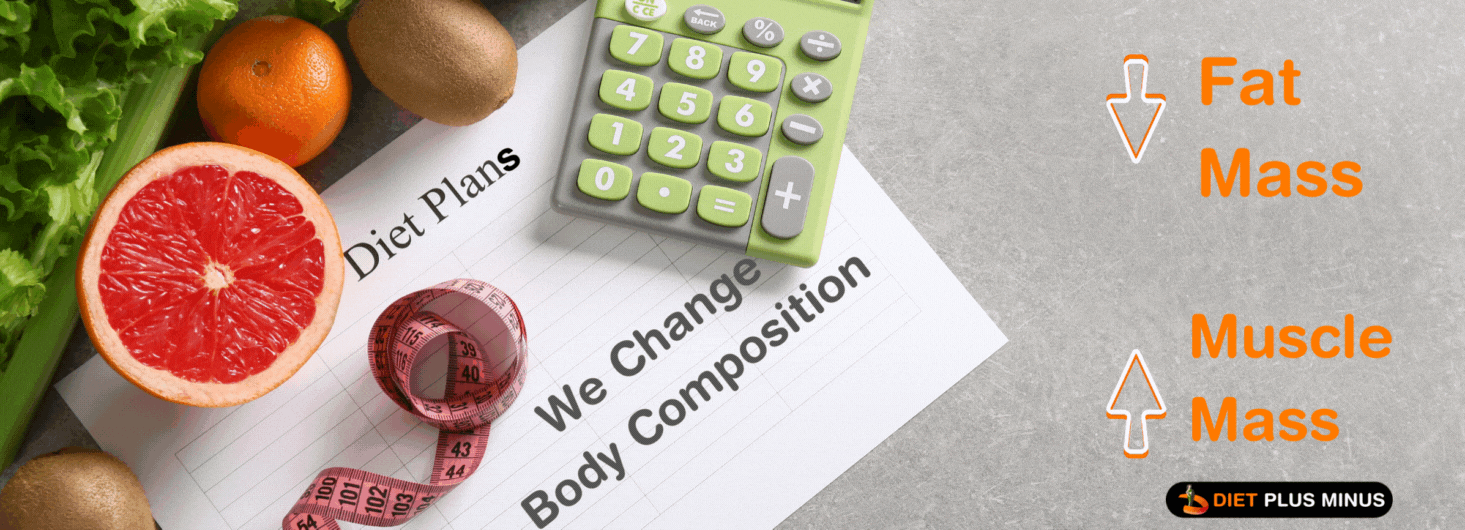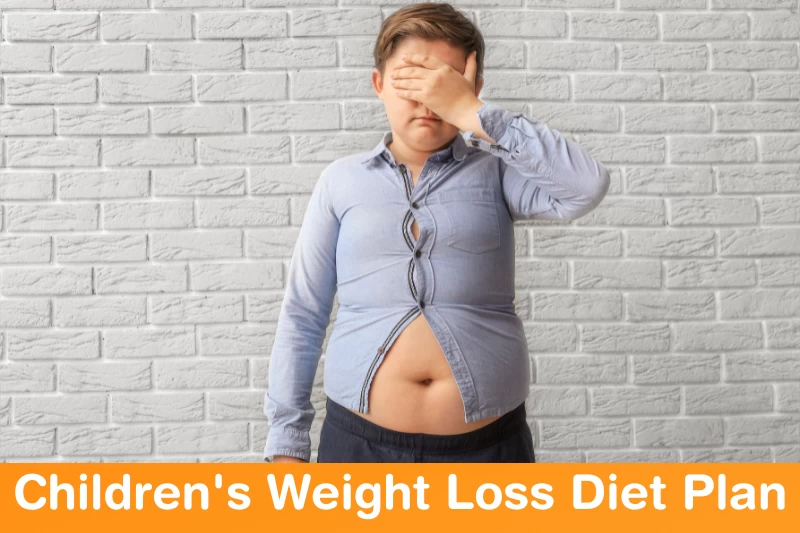
Every plan focuses on practical, sustainable change. You receive a personalized diet and activity guide, habit coaching, and timely reviews—so you always know what to do next. Choose a structure that matches your current needs and the amount of accountability you prefer.

| Duration | Price | |
| 4 WEEKS DIAMOND PLANS | Rs 7000 | Express Checkout |
| 14 WEEKS DIAMOND PLANS | Rs 20000 | Express Checkout |
| Duration | Price | |
| Express checkout |
When the body mass index (BMI) of a child is at the same level or higher than 95% of his/her peers, he/she can be considered obese. BMI is used as a tool to determine weight status. Height and weight are used to calculate the BMI. Your BMI percentile is then determined using your gender and age.
Obesity is a serious health problem for children. Overweight and obese children are at a higher risk of developing many chronic health conditions. Obesity and the problems related to it also continue into adulthood. Childhood obesity not only affects physical health but can also affect the social and mental health of a child. They can become depressed and have a poor self-image and self-esteem.
"Childhood obesity is a serious issue increasing worldwide. However, children can learn healthier ways to cope with their problems. This can be done with proper education on healthy eating habits and various outdoor activities. In this context, their parents, teachers, and other caregivers help them. Help your children stay healthier for longer by preparing nutritious foods for them and encouraging them to get plenty of exercise."
The main role in childhood obesity is played by family history, psychological factors, and lifestyle. Children with parents or other family members overweight or obese are more likely to be obese. But the root cause behind the obesity of children is a combination of eating too much and exercising too little.
Foods like fast food, candy, and soft drinks, containing high levels of fat or sugar and low in nutrients, are the common culprits for fast weight gain. According to a study, 32% of adolescent girls and 52% of adolescent boys in the US drink 24 ounces of soda or more per day. Some children gain weight because their parents are unaware of foods that can be harmful to their children. They don’t know how to choose and prepare healthy foods. Other families may not afford fresh fruits, vegetables, and meats. Convenience foods like frozen dinners, canned pasta, and salty snacks also contribute to unhealthy weight gain.
Less physical activity may be another cause of childhood obesity. Less activeness at any age tends to cause weight gain. Exercise keeps you healthy by burning your calories and maintaining your weight. Children who don’t spend their time in sports and other physical activities are less likely to burn their extra calories and as a result, become overweight or obese.
The third reason for obesity in children is psychological issues. Bored, stressed, or depressed kids eat more, to cope with negative emotions.
|
Unhealthy nutrition |
Consuming foods high in low-quality fats and sugar, and less nutrient-dense. Like fast foods, energy drinks, and candies. |
|
Lack of physical activity |
Television viewing, the internet, and computer games have taken the place of outdoor games. |
|
Academics |
The increasing burden of academic competitiveness among students has led to decreased participation in sports and any other form of physical activity. |
|
Working status of parents |
At this time, both parents are working and they don’t have time to plan and provide a balanced meal for their kids. They let their children eat fast foods and other unhealthy foods. |
|
Technology |
Advancements in technology, especially in the field of entertainment led children more dependent upon television and computers in place of sports and physical activity, making it a sedentary lifestyle for the children. |
|
Increased socioeconomic status |
Increased purchasing power led to the movement towards school cafeterias, and nearby fast food joints for food/snacks. |
|
Wrong parental approach |
Parents in India and other developing countries have a general misconception that a fat child is a healthy child. To keep the child “healthy,” he/she is fed in excess. |
Obese children are always at a higher risk of developing health problems as compared to their peers having a healthy weight. The most serious risks associated with childhood obesity are diabetes, heart disease, and asthma.
Overweight children and adults are more likely to develop type2 diabetes. Patients having type2 diabetes are not able to metabolize glucose properly present in their bodies. Diabetes can lead to kidney dysfunction, nerve damage, and eye disease. However, the condition may be reversible through diet and lifestyle changes.
Obese children are also at a higher risk for developing high cholesterol and high blood pressure levels, giving rise to future heart disease. High salt and high-fat foods cause increased cholesterol and increased blood pressure levels. The two major complications of heart disease are heart attack and stroke.
Asthma, a chronic disease of the lungs, is caused by inflammation of the lung's airways. Obesity is the most common comorbidity with asthma. According to a recent study, about 38% of adults with asthma in the US are also obese. In the same study, it was found that obesity may be a risk factor for more severe asthma in some, but not all, people with obesity.
Obese children and teens may also suffer from sleep disorders like excessive snoring and sleep apnea. Their airways can be blocked by the extra weight in the neck area.
Obese children can also experience joint stiffness, pain, and a limited range of motion from carrying excess weight. In most cases, weight loss can eliminate joint problems.
In this section we discuss important aspect and their impact on childhood obesity as follows:
|
Determinants of childhood obesity |
Medical impact |
Psychological impact |
Economic impact |
|
|
|
|
It’s essential to change the eating habit of obese children. Parental effort is very essential to influencing a child's eating patterns. Normally, kids eat what their parents buy. So, it's of utmost importance for the parents to start with themselves.
Restrict the entry of sweets and soft drinks into your home. Replace juice with fruits because drinks made of 100% juice can be high in calories. Serve water or low-fat or non-fat milk with meals. Restrict fast foods and ready-to-eat foods, and try to cook more at home. Preparing a meal and eating together is not only a healthy option in a nutritional sense, but it’s also an excellent way to spend some time with your family.
Instead of using processed items, baked goods, or salty snacks, plan your meals and snacks around fresh foods. You may try:
low-fat dairy products, i.e. skim milk, low-fat plain yogurt, and low-fat cheese
lean proteins like chicken and fish
fresh fruits and vegetables, and
whole grains, such as brown rice, whole-wheat pasta, and whole wheat bread.
As there will be a transition to a healthier way of eating, your overweight or obese child will most probably lose some weight. If weight loss doesn’t occur, consult your pediatrician. He/ she may recommend a nutritionist or dietician for further weight loss.
1. Increase Physical Activity
Try to increase the physical activity of your children so that they can shed weight safely. Always encourage your child to do exercise in the form of activities to make workouts interesting for them. Playing football or some other outside game will be more interesting for a child than jogging around the block. Always encourage your child to try a sport in which he /she has an interest. One study shows that children get at least one hour’s worth of exercise daily to remain healthy.
2. Increase family activities
Plan some activities which the whole family can enjoy together. This will not only make a great bond between the family members but also help your child learn by example. Hiking, swimming, or even playing tag can help your child get active and start on the path to a healthier weight. Vary activities to avoid boredom.
3. Decrease time spent in front of the screen
Restrict the time spent in front of the screen. Children spending their time watching television, playing computer games, or using smartphones or other devices are more likely to be overweight.
According to a study, there are two big reasons for this. First, screen time cuts the time that could be spent doing physical activities and sports instead. And second, more time in front of the TV means more time for snacking and munching and also more exposure to ads for the high-sugar, high-fat foods that make up most food marketing.
|
Education |
|
|
Community |
|
|
Monitoring and surveillance |
|
|
School-based programs |
|
|
Perinatal and neonatal period |
|
|
National health authority |
|
|
Legislative |
|
|
Home |
|
Register/Login ♦ Blog ♦ Subscription Plans ♦ Calculator ♦ Exercises All Testimonials ♦ Before and After ♦ Recipe ♦ Amazon Pantry ♦ Amazon Daily Deals ♦ Shop with Amazon ♦ Disclaimer ♦ Privacy Policy ♦ Terms and Conditions ♦ Facebook ♦ Twitter ♦ Linkedin ♦ Youtube
Note: Plans provide lifestyle guidance. Medication changes are overseen by your treating physician. Pricing/inclusions may vary by promotions.
Read More
Read More
Read More